Transcranial Magnetic Stimulation - TMS Center clinic therapy
Real Relief, Real Results—See Why So Many Are Turning to TMS
NorTex Psychiatry TMS Center in Allen Tx, Dallas.
The Benefits of TMS Therapy
FDA-Approved
TMS is cleared by the FDA for treatment-resistant depression, offering a clinically proven and trusted alternative to medication.
No Medication
TMS is completely drug-free, eliminating the risk of side effects commonly associated with antidepressants.
Non-Invasive
No surgery, no sedation—just gentle magnetic pulses that target specific areas of the brain linked to mood regulation.
Minimal Side Effects
Most patients experience little to no side effects, making TMS one of the safest depression treatments available today.
Convenient Sessions
Each session takes around 20 minutes, and you can return to your daily routine immediately afterward—no downtime needed.
Insurance Coverage
TMS therapy is covered by most major insurance providers, making it more accessible than ever for those who qualify.
What is Transcranial Magnetic Stimulation (TMS)?
Transcranial Magnetic Stimulation (TMS) is a non-invasive procedure used to stimulate certain areas of the brain. It’s typically used to treat depression and other psychiatric conditions.
During a TMS session, an electromagnetic coil is placed against your scalp near your forehead. The electromagnet painlessly delivers a magnetic pulse that stimulates nerve cells in the region of your brain involved in mood regulation and depression.
Getting Started Is Simple
1. Consult
A Nortex Psychiatry patient coordinator will connect with you, answer your questions, review your symptoms, and check your insurance coverage.
2. Evaluation
You’ll meet with one of our experienced providers—either in-person or virtually—to determine if TMS is the right treatment for your unique needs.
3. Begin Treatment
If you’re a candidate, we’ll schedule your first TMS session and create a personalized plan to support your progress and mental wellness.

How Does TMS Work?
The coil generates a magnetic field, similar in strength to that produced by a magnetic resonance imaging (MRI) machine.
Brain Cell Stimulation: The magnetic field passes through the skull and stimulates brain cells. This can affect how this part of the brain is working, which in turn can affect your mood.
The potential benefits of TMS include a reduction in symptoms of depression and improvement in mood. One of the significant advantages of TMS is that it’s non-invasive and generally has fewer side effects compared to medications. Common side effects are generally mild and may include headache or scalp discomfort at the treatment site.
TMS is usually used when other treatments such as medications and psychotherapy haven’t been successful.
What Are The Benefits of Transcranial Magnetic Stimulation (TMS)?
Transcranial Magnetic Stimulation (TMS) is an innovative treatment option for various psychiatric conditions, particularly for individuals with depression and obsessive-compulsive disorder (OCD). The primary benefits of TMS include:
Effectiveness in Treatment-Resistant Cases: TMS has shown to be effective in reducing symptoms for many individuals who haven’t responded to traditional treatment methods such as psychotherapy or pharmacotherapy.
Non-Invasive and Drug-Free: TMS does not involve surgery or any implanted devices, and it doesn’t require the administration of any medications. This means it doesn’t have the systemic side effects that can occur with medication, such as weight gain, sexual dysfunction, or gastrointestinal issues.
Outpatient Procedure with Minimal Downtime: The treatment is typically performed in an outpatient setting and does not require hospitalization or anesthesia. Patients can resume their usual activities immediately after each session.
Relatively Few Side Effects: The side effects of TMS are generally mild and typically improve after the first week or two of treatment. They may include headaches or discomfort at the treatment site. Unlike some medications used for depression and OCD, TMS does not lead to cognitive (thinking or memory) problems. In fact, some studies suggest it might actually improve cognitive function.
Long-term Improvement: For many people, improvements from TMS are long-lasting. Studies suggest that many people who respond to TMS treatment remain symptom-free for many months afterwards.
As promising as TMS is, it’s important to remember that it’s not effective for everyone, and individuals should discuss with their healthcare providers to determine if TMS is the right option for them.
Is Transcranial Magnetic Stimulation safe?
TMS is generally considered safe and is approved by the U.S. Food and Drug Administration (FDA) for the treatment of major depressive disorder in adults who have not responded to at least one antidepressant medication. The most common side effects are usually mild and include headache and discomfort at the treatment site. There’s also a small risk of seizure, but this is rare. It does not have the systemic side effects associated with medications since it’s a localized treatment. That being said, not everyone is a suitable candidate for TMS, and it’s important to discuss potential risks and benefits with the TMS team at Nortex Psychiatry.
TMS Therapy FAQ's
NeuroStar delivers gentle magnetic pulses to the brain’s prefrontal cortex, the area linked to depression. These pulses activate underactive brain cells to improve mood and reduce depression symptoms.
If you have treatment-resistant depression (when medications and therapy haven’t worked), NeuroStar might be a good option. A doctor will assess your condition to determine if you’re a candidate.
Yes, if your loved one struggles with depression and hasn’t found relief from other treatments, NeuroStar could be an effective alternative. It’s worth discussing with their healthcare provider.
Yes, many patients achieve remission, meaning their depression symptoms greatly improve or go away. The effects can last for months, and booster treatments can help maintain results.
NeuroStar is FDA-cleared and considered very safe. Side effects are minimal, with mild scalp discomfort or headaches being the most common, and they usually go away quickly.
No, NeuroStar does not cause memory loss. Unlike ECT (electroconvulsive therapy), NeuroStar focuses on specific brain areas and doesn’t have cognitive side effects.
Most people feel a tapping or tingling sensation during the session, but it’s not painful. Any discomfort usually fades after the first few treatments.
No, NeuroStar and ECT are different. ECT uses electrical currents and requires anesthesia, while NeuroStar uses magnetic pulses and is non-invasive, with no need for sedation.
Yes, many insurance plans, including Medicare and Medicaid, cover NeuroStar for treatment-resistant depression. Check with your provider to confirm coverage.
NeuroStar offers programs to help patients who need financial assistance. You can contact NeuroStar or your provider for details on payment plans or discounts.
You can discuss out-of-network benefits with your insurance company or ask your doctor about payment plans or referrals to another provider who accepts your insurance.
You can visit NeuroStar’s website to use their “Find a Doctor” tool or ask your current healthcare provider for recommendations.
No, NeuroStar is not experimental. It’s FDA-cleared for treating major depressive disorder (MDD) and is backed by clinical studies showing its safety and effectiveness.
Patient Experiences - TMS Therapy Near You
of Patients Experience Significant Symptom Improvement
A real-world study reported that 83% of patients completing their NeuroStar® TMS treatment cycle saw measurable improvement in their depression symptoms.
of Patients Achieve Full Remission
The same study found that 62% of patients completing their NeuroStar® TMS treatment cycle achieved full remission, indicating they would likely no longer be diagnosed with Major Depressive Disorder (MDD) if evaluated anew.
Less Than 0.1% Risk of Serious Side Effects
With TMS treatment, fewer than 5% of people discontinued treatment due to adverse events. Making TMS treatment a safe option for many patients.
TMS Self Assessment Test
This assessment is not designed to serve as a diagnostic instrument, nor should it substitute for an accurate diagnosis. It is merely intended for providing information. It’s crucial to remember that only a certified mental health professional or a physician should diagnose mental health issues. Irrespective of the outcome of our evaluation, we strongly recommend consulting with a doctor regarding your mental health.
TMS is often considered for people diagnosed with depression or OCD who have not improved with standard treatments such as psychotherapy or medication.
If your symptoms haven’t improved after trying one or more antidepressants, or if you’ve had severe side effects from medications, TMS may be an option for you.
TMS is non-invasive and generally well-tolerated, but certain physical conditions may make it a less suitable option. For example, if you have a pacemaker or any other type of implanted medical device, you might not be a good candidate due to the strong magnetic fields produced by the TMS machine.
Some people prefer TMS over medication due to the different side effect profiles. TMS generally has fewer side effects than many psychiatric medications, with the most common being headache or scalp discomfort during the treatment.
In some severe cases where symptoms are debilitating and unresponsive to other treatments, TMS may be considered sooner.
Spravato is specifically designed for adults with treatment-resistant depression (TRD) and major depressive disorder (MDD) who have not responded adequately to other antidepressant therapies. It is also indicated for adults with MDD who are experiencing acute suicidal ideation or behavior. Treatment-resistant depression refers to a condition where patients have tried and failed to find relief from depressive symptoms with at least two different antidepressant treatments. In such cases, Spravato offers an alternative approach with its distinct mechanism of action.
You might need Spravato if you are an adult suffering from one of the following conditions and have not found relief with traditional treatments: Treatment-Resistant Depression (TRD): This is when you have tried at least two different types of antidepressant treatments during your current episode of depression, but your symptoms have not improved. Spravato offers an alternative approach for those who haven’t responded to standard antidepressants. Major Depressive Disorder (MDD) with Acute Suicidal Ideation or Behavior: If you are experiencing severe depressive symptoms along with thoughts or behaviors of harming yourself, and require an urgent and rapid response, Spravato might be considered as part of your treatment plan.
Spravato might be a preferred choice for treating depression, especially if you haven’t had success with other medications. It works quickly, often providing relief from depressive symptoms faster than traditional antidepressants. This makes it a valuable option for those with severe depression or suicidal thoughts. It’s also specifically designed for people whose depression doesn’t improve with standard treatments. While it has a unique way of working in the brain, it’s important to use it under medical supervision due to potential side effects. For those struggling with treatment-resistant depression, Spravato offers a new hope and can be used alongside other antidepressants.
Spravato is particularly effective for severe cases of depression. It’s a go-to option for people who haven’t seen improvement after trying multiple antidepressants, known as treatment-resistant depression. It’s also helpful for those in critical states of depression with thoughts of suicide, as it can work faster than many other treatments. However, it’s not a one-size-fits-all solution, and its success can vary from person to person. It should always be used under medical guidance as part of a broader treatment plan.
Schedule Your TMS Therapy Appointment
Complete the form below to schedule your appointment or consultation. We take your privacy seriously. Information will never be shared and is always encrypted.

TMS Therapy and Weight Gain: Is There a Connection?
If you’re starting transcranial magnetic stimulation (TMS) therapy for depression, you might be wondering, “Will this affect my weight?” It’s

Can You Drive After a TMS Therapy Session? What Experts Recommend
Transcranial Magnetic Stimulation (TMS) is a non-invasive, outpatient treatment for depression that doesn’t involve anesthesia, sedation, or major downtime. But

TMS Therapy and Alcohol Addiction: Can It Help?
Alcohol addiction can be overwhelming—for both the person struggling and their loved ones. Traditional treatments like medication and talk therapy

Is TMS Therapy Safe for Elderly Patients?
Depression in the elderly can be hard to treat. Many older adults don’t respond well to medications or deal with


